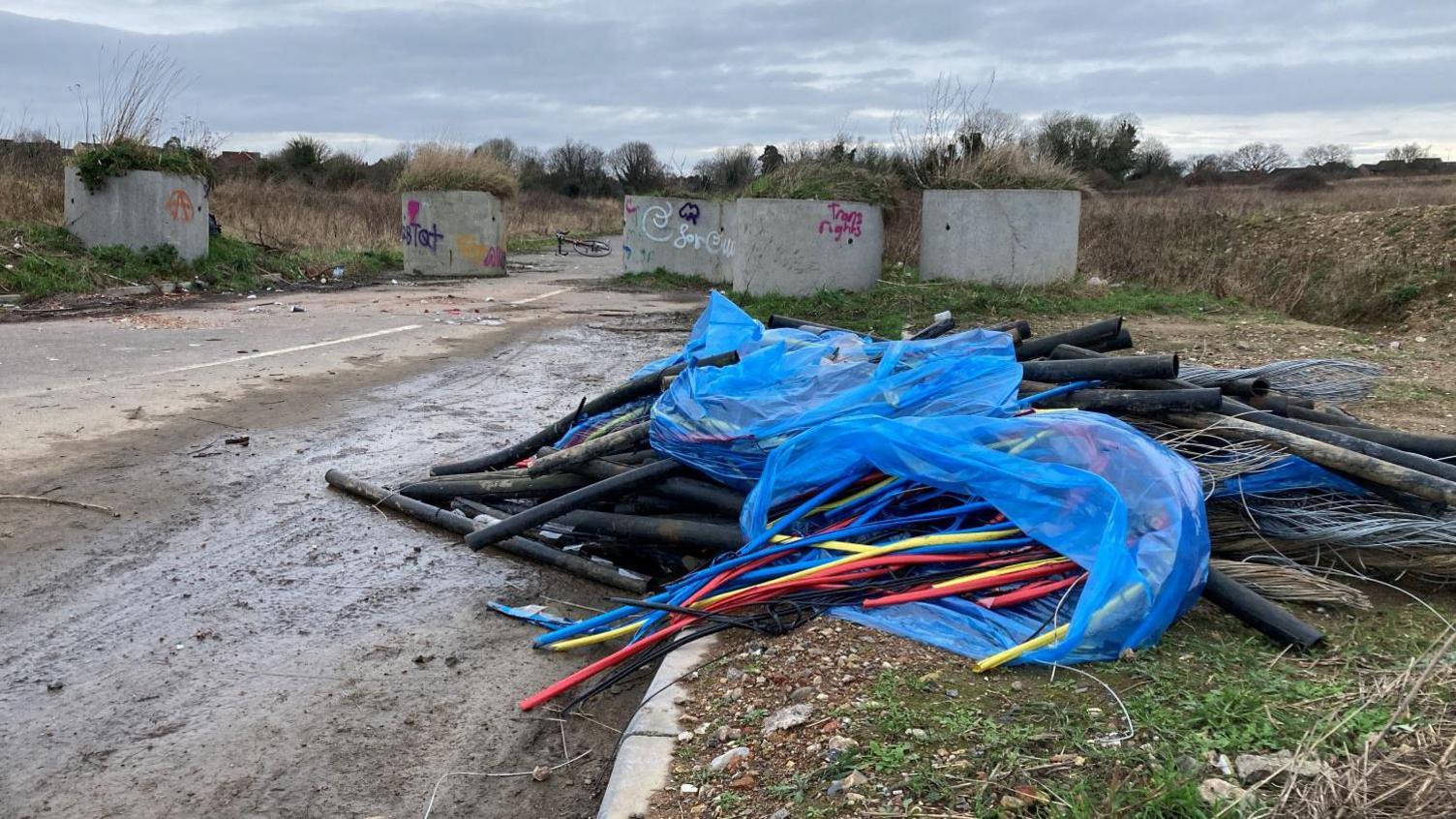Community get bin lessons to keep a lid on litter
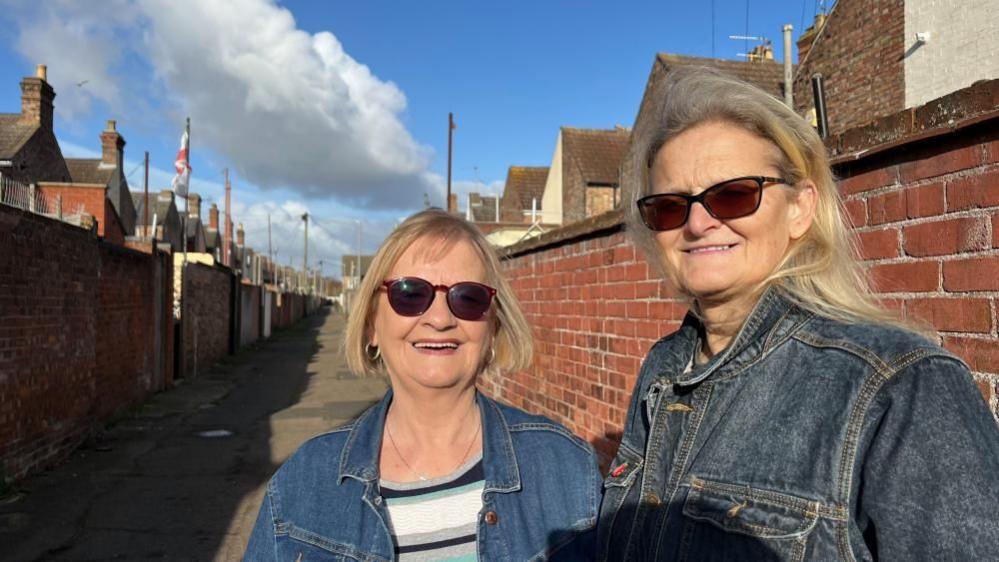
Jenny Butcher and Linda Osborne say they send pictures of fly-tipping and rubbish to the council every day
- Published
People living in an area blighted by fly-tipping have been educated on how to use bins correctly.
Residents in the Cobholm area of Great Yarmouth, Norfolk, said streets and alleys were strewn with rubbish - so they asked the council to take action.
Great Yarmouth Borough Council said its rangers had given advice, handed out leaflets and put up signs.
James Wilson, the council's head of environment, said: "It's about re-educating some people, to advise them exactly what the expectation is from the council - and what their responsibility is to keep their area clean and tidy."
The authority now plans to tackle litter on the Barrack Estate.
Jenny Butcher, 75, has lived in Cobholm for more than 50 years, since she got married.
She said she was "ashamed" to be living close to a litter-strewn passage.
"That used to be tidy and over the last few years it's got worse.
"I got so fed up with it we were sending photos to the council nearly every day," she said.
Linda Osborne, 57, said smelly rubbish had stopped her nieces playing outside.
She added: "In the summer it was absolutely horrendous, because you had the seagulls just ripping the [bin] bags to shreds.
"There was raw food across the passage.
"It stunk, absolutely stunk."
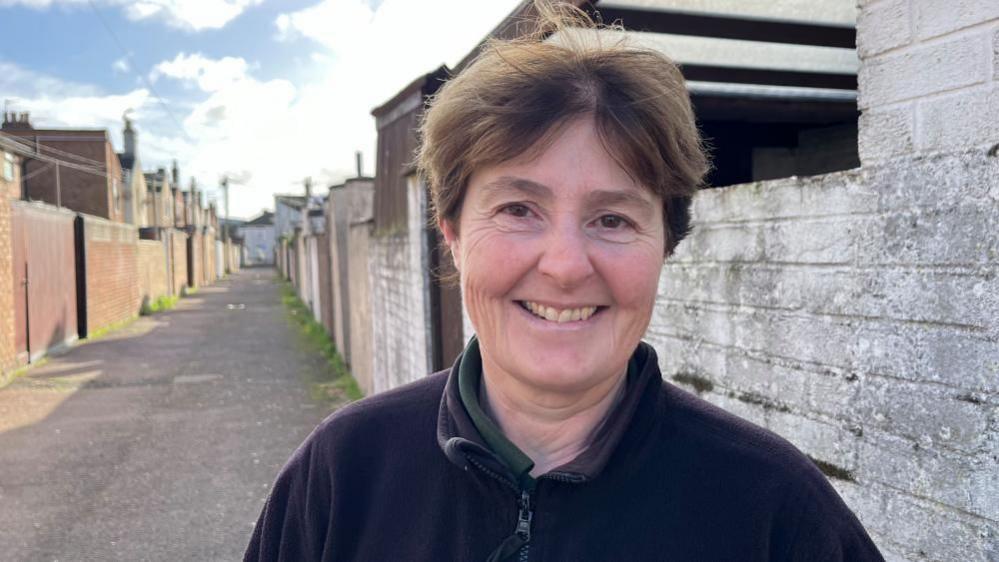
Environmental ranger Kerry Hemsworth says bins that did not have house numbers were taken away
The council team stressed that leaving waste near, or next to, bins is also fly-tipping.
Kerry Hemsworth, a council environmental ranger, said: "There were regularly 90 bins stored out in the passages.
"The information we sent to residents encouraged them to take their bins out of the passageways and store them within their properties.
"Where the bins weren't numbered or identified, we put stickers on them, moved them to the ends of the passages and after a few days, ultimately, we removed them."
Afterwards, with fly-tipping falling, "thank you" letters were sent out.
Residents reported fewer problems and street cleaning crews saw fewer overflowing bins.
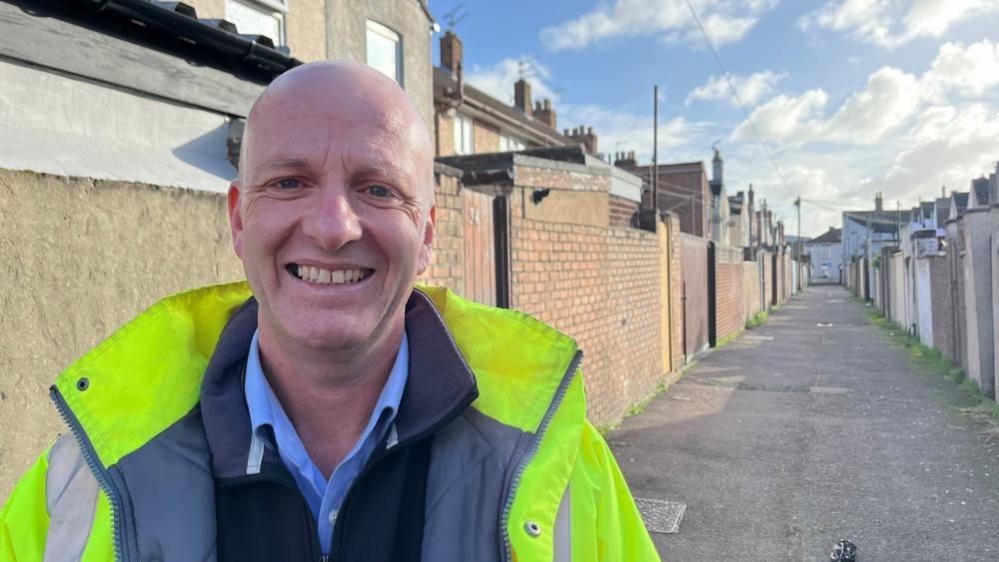
James Wilson, head of environment at Great Yarmouth Borough Council, said keeping areas clean will mean more money for other services
James Wilson, the authority's head of environment and sustainability, said savings made could be spent elsewhere.
"This year we have had somewhere in the region of 4,500 fly-tips cleared. We have five crews out pretty much all the time, just dealing with fly-tipping alone," he said.
"That's a lot of resources and effort just to keep on top of waste that people should be able to manage themselves."
Follow Norfolk news on BBC Sounds, Facebook, external, Instagram, external and X, external.
Related topics
More stories like this
- Published23 September 2024
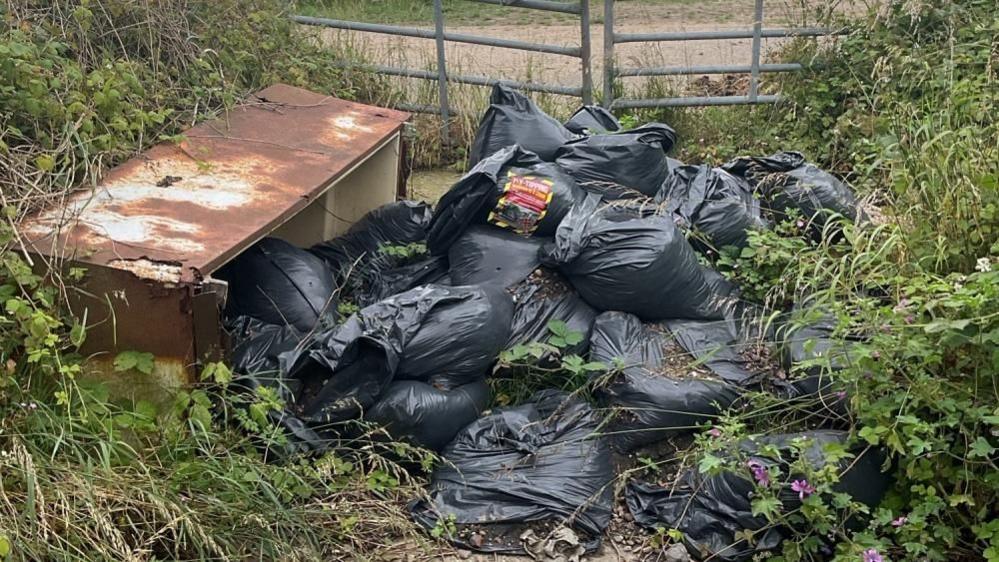
- Published10 February 2024
